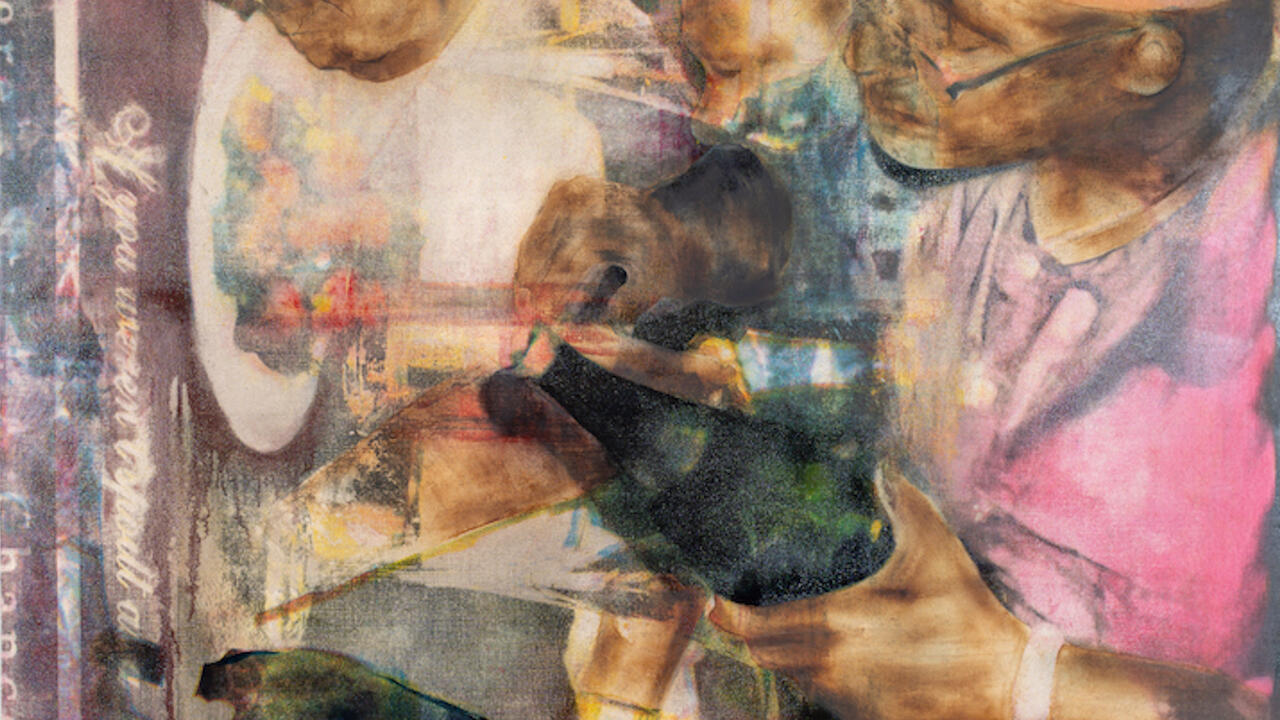Alfred Jarry: A Pataphysical Life
An interview with Alastair Brotchie, the author of a new critical biography of Alfred Jarry, published by MIT Press
An interview with Alastair Brotchie, the author of a new critical biography of Alfred Jarry, published by MIT Press

Erik Morse Your new book, Alfred Jarry: A Pataphysical Life, is the most comprehensive history of the Ubu bon-vivant yet published in English. Given your own contributions to scholarship – in the realm of pataphysics, Surrealism, Dadaism, Oulipo, etc. both with founding the London Institute of ‘Pataphysics and through numerous publications and translations at Atlas Press – can you tell me a bit of the history of the French avant-garde as it has been discovered, re-discovered and reformatted by the English-speaking world?
Alastair Brotchie Atlas Press has indeed published in the areas you mention. We see in the works of these groups a sort of alternative canon of Modernism that is a long way from the dry theories and formalism that, in the UK at least, is generally associated with the avant-garde. Atlas (there are four of us) maintains that there has always been a strain of the avant-garde that is not po-faced, but passionate, and above all, entertaining. Its first modern incarnation was French Symbolism in the 1890s, a movement in which Alfred Jarry was involved. His highly individual take on it proved particularly influential for the later groups you mention.
In the 1890s, the UK, the US and France were all very different, both culturally and politically. England, the imperial power at the time, was not much given to introspection or self-doubt, and the William Morris/John Ruskin Arts & Crafts aesthetic had rather run its course. Although Symbolism was promoted here by Arthur Symons and Oscar Wilde, it had little impact, and after Wilde’s ‘disgrace’, interest in it became virtually criminal.
The USA, home of business and the pioneers, would likewise appear an unlikely place for Decadent effusions to hold much appeal, yet publishers such as Knopf and Mosher put out many of the important texts in translation. The introduction of Dada and then Surrealism into the US has been described in various studies. Marcel Duchamp was obviously the pivotal figure, but he was aided by many others both European and American (Francis Picabia, Alfred Stieglitz et al).
These 20th-century French movements had less influence in the UK than in the US, despite our closeness to France. English self-regard was not the only reason. It was, ironically, the presence here of two American authors that perhaps tipped the balance. Both were Modernists (of a sort), but they were also politically reactionary: T.S. Eliot and Ezra Pound. Eliot, as editor of The Criterion and the Faber poetry list was in a particularly good position to hold back this tide of peculiar foreign literature. He seemed perfectly at ease in the class-bound circles in which he moved: literature was then an upper-crust occupation in the main. There was to be no Dada movement in the UK. Instead we had the comparatively timid experiments of the Sitwells and the Bloomsbury Group – and the Woolfs complaining about their servants! And it’s not so different today. The literary scene in the UK is overwhelmingly dominated by ‘Eng-Lit’ graduates from Oxbridge.
EM The London Institute of ‘Pataphysics represents one of the few ‘secret’ literary societies to maintain a certain Francophone identity in the Anglophone world – from Alfred Jarry’s Ubu clan, to the Société des amis de Fantômas to Acéphale and the Oulipo. What kind of importance do you grant these kind of societies in the progression of the avant-garde throughout the last century?
AB The French seem to delight in such associations! I tend to think that these groups were the direct result of their education system. At once egalitarian and highly streamed, it resulted in gifted young adolescents meeting their peers at a highly formative period of their development. They formed close associations that often lasted for decades. The early Surrealists, for example, were essentially an amalgamation of several such groups of ex-school friends.
The French education system also foregrounded the study of philosophy, which perhaps encouraged the creation of competing artistic schools that were politically engaged. The situation was quite different in the UK and the US. The avant-gardes tended towards the left, and leftist politics was soon rigorously suppressed in the US (the Wobblies, McCarthyism), and absorbed into the mainstream in the UK (the Labour Party and its allies won out over the revolutionary socialism promoted by William Morris and his friends). In the UK, furthermore, education is not egalitarian but elitist in the main, and dependent on wealth. We now have a government most of whose ministers went to Eton!
However, of the groups you’ve mentioned only the Oulipo would describe itself as concerned with literature, and none of them except Acéphale was actually secret. English-speaking critics often consider the political or philosophical affiliations of some of these groups as a decorative add-on, which seems no more than a prejudice based on simple ignorance…
EM In the opening pages of A Pataphysical Life, you cite the author’s use of the term monster – ‘an unaccustomed harmonizing of dissonant elements […] I call “monster” every original inexhaustible beauty’ – as a way into understanding the self-mythologizing character of Jarry himself, both as author and performer. How does the figure of the monster highlight the volatile nature of the avant-garde in the transitional period of the fin-de-siècle?
AB Jarry’s statement was, I feel, an early version of something that became an essential element of ’Pataphysics, a sort of ‘principal of incongruity’. This principle underlies much of Jarry’s writing, and, I would maintain, his life too. Both explore the crashing together of ‘dissonant elements’ so as to create, not so much a synthesis, as a situation in which these incongruities can continue to coexist. So, for example, nearly all of Jarry’s writing is at once serious and humorous; it can be at its most profound when most preposterous; and never more sincere than when its deeply ironic. The popularity of his play Ubu Roi is not so much because it is a comedy, a farce, but because, while it is a comedy, we can be in no doubt that such monstrous persons as Père Ubu actually exist, and are even commonplace. Jarry certainly saw him as an accurate portrayal of ‘everyman’: no comedy could be more tragic.
However, the entrenched ambiguities of Jarry’s works and life seem to me to relate culturally more to what followed him, than to the fin-de-siècle milieu. This is perhaps why his contemporaries (with a few forward-looking exceptions, such as Apollinaire, Picasso, Octave Mirbeau) thought his works too odd to survive. They only gained an audience much later, when read in the context of writers he had influenced.
EM In the chapter dedicated to Jarry’s love life, you reference his obscure use of the term ‘adelphism’ – as opposed to the then popular homosexual label ‘Uranism’ – in an attempt to explain his ambiguous sexuality and sometimes virulent misogyny. How do you think Jarry’s preoccupations toward eroticism, love and narcissism mirrored or differed from the other great epicene of the era, Oscar Wilde, whose company Jarry kept on some occasions?
AB Well, ‘adelphism’ was Jarry’s term for a variant of homosexuality in a novel, I’m not sure he ever used it in real life. And Jarry’s love life was something of a mystery! He was certainly homosexually inclined in his early twenties, though it’s interesting to note that both the persons of his affection later married (one was the poet Léon-Paul Fargue). Sexuality, both homo- and heterosexual, was something that Jarry wrote about a lot, while being apparently absent from much of his life. Very different from Wilde, whom he did meet, but only on a few occasions. Each perhaps liked an audience rather too much to become one for the other, and as I put it in my book: ‘Jarry, the hard-drinking athlete, totally negligent of his appearance, did not much resemble the contemporary literary trope of the limp-wristed Decadent poet.’ This is maybe why Jarry did not much mix in overtly homosexual company so far as we know, and I feel his concept of adelphism (adelph is Greek for ‘brother’), could be seen more as a sublimation, or even as simple lack of interest. As for his misogyny, given Jarry’s several female friendships, I’m inclined to think this has been overstated, though I accept that’s not an easy position to defend given some of his writing!
EM Is it possible to define, or, at least, discuss the parameters of ‘Pataphysics’, as Jarry might have understood his own term, in 300 words or less?
AB I think Pataphysics was, for Jarry, a way of holding the contradictory aspects of his personality in some sort of precarious balance. In his novel , it appears as a scientific (i.e. objective) means of intensifying subjective experience. In this aspect it somewhat resembles Rimbaud’s idea of the poet making himself a ‘seer’ through the deliberate ‘derangement of the senses’. Jarry certainly employed the same means (drink and drugs) but could not have known of these ideas of Rimbaud’s, then unpublished. Later, Pataphysics assumed for Jarry a more philosophic tone, it became a means of exploring inversions of meaning with a logic ‘every bit as irrefutable as that of the mad or the senile’. Pataphysics in fact provided a rigorously logical underpinning for his “monstrous” character, and also a rationale for the more extreme non-conformities of his daily life.
EM The 1896 premiere of Jarry’s Ubu Roi is largely remembered for the cause célèbre it created throughout Paris. But you also claim that Jarry had a large hand in contriving the riots that erupted during the performance. Do you believe Ubu’s staging to be as iconoclastic as subsequent generations of writers and critics would attest or has Jarry’s other ‘role’ as a ringmaster been falsely ignored over the last century?
AB Jarry absolutely believed in the play, and in its production. However, the result was certainly one of the most satisfying riots in French theatre history, and Jarry and the play’s director had conspired to make this the likely outcome. Even so, the features of the production which proved most controversial do not seem to have been intended by them to be so. Jarry was determined to revolutionize so many different aspects of French theatrical practice at once that he inadvertently ran ahead of his audience by several decades. They found themselves at best baffled, at worst revolted. And, it should be stressed, this was not the bourgeoisie in search of vapid entertainment, but the most “advanced” audience then to be found in Paris. Jarry’s intentions were indeed serious (and thus humorous too). The play had a profound influence on twentieth century drama, Artaud named his company after him, etc… So serious, indeed, were Jarry’s intentions that he was almost obliged to sabotage his own play. Pataphysics demanded it!
EM Throughout A Pataphysical Life two distinct portraits of Jarry are drawn: the first, an urban Maldoror, an absinthe-fueled ‘writing machine’ and ‘pataphysician’ who often drew his pistol on unsuspecting city dwellers and occasionally provoked riots in the persona of Ubu; the second, a country ‘troll’ who retreated from Paris to fish, bicycle and enjoy rustic solitude among the barge workers and local neighborhood children. Is either persona the more ‘authentic’ Jarry?
AB I suppose one of the aims of my books is to show (in the so-called intercalary chapters) how these two distinct portraits are in fact one, and how they are integrated by what these chapters describe: a combination of Jarry’s internal impulses and of external influences. Personally I see no contradiction, or rather it’s a contradiction that is easily resolved by the means devised by Jarry himself: pataphysically. Jarry’s life in both city and country was pretty unconventional, and equally uncomfortable in both. Something I perhaps did not stress enough in the book is that despite Jarry’s peculiarities of behavior, which in anyone else would have quickly become tiresome, he was immensely popular. He evidently had great personal charm and his company was sought out by a wide range of his contemporaries. The retreat to his shack by the Seine outside Paris may in part have been a way of finding himself time to actually write. And, of course, it provided him with a much-needed source of free food: fish from the river.





















